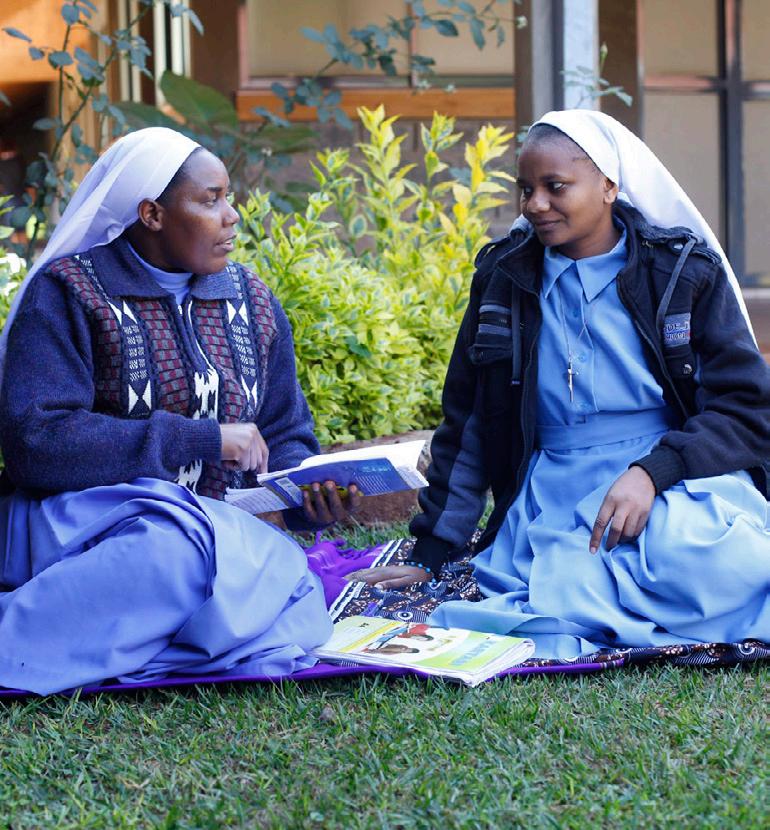Regional Program Manager Church Sector
October 2022



Named to represent an open gateway to a brighter future, Porticus coordinates the philanthropic endeavours of the Brenninkmeijer family business owners, continuing a tradition of social engagement stretching back as far as 1841 when Clemens and August Brenninkmeijer founded C&A, starting a tradition of doing good while doing business.
Since our founding in 1995, the professionalisation of both the organisation and the charitable sector has picked up with speed. Porticus has grown to over 180 philanthropy professionals today, working on the challenges of our times and seeking to improve the lives of those in need just like Clemens and August intended to do. The family’s philanthropy stems from their faith, and their charitable work has always had a strong affiliation to the Catholic Church.
 2 | Porticus Regional Program Manager - Church Sector
2 | Porticus Regional Program Manager - Church Sector
Together with our partners, our purpose is to create a just and sustainable future where human dignity flourishes. Everything we do is directed by this overarching goal.
To achieve our ambition, we have set ourselves two goals which guide our way of working: we listen and learn from the people we seek to serve, and we act on evidence showing what works. We believe this way of working will make us a better partner to the organisations we work with – it will make our collective efforts more impactful.
We are committed to ensuring the people who are affected by poverty and exclusion participate meaningfully in all our grants and programmes. We listen carefully to the end beneficiaries we seek to serve and help ensure their voice is heard. We also aim to act upon what we’ve heard, increasing
their agency. For us, end beneficiary participation is both a means and an end: we know it works in practice and we’re convinced it matters in principle.
We aim for a proven contribution to positive impact in the majority of our endeavours, while acknowledging we are working on complex problems that are not always easy to solve or prove. By evaluating the effect of our work, we can continually improve, make smarter decisions and increase the effect we have. All our work is evidence-based or evidence-building, and we look to share the evidence we collect to help other parties achieve similar positive results.
Every human life is uniquely valuable, and our respect for this brings us together. This is why we do what we do.
We believe that a just and sustainable world is possible for everyone. The philanthropic work of the Brenninkmeijer family business owners has always been rooted in the principles of Catholic Social Teaching – serving the common good and promoting human dignity and social justice.
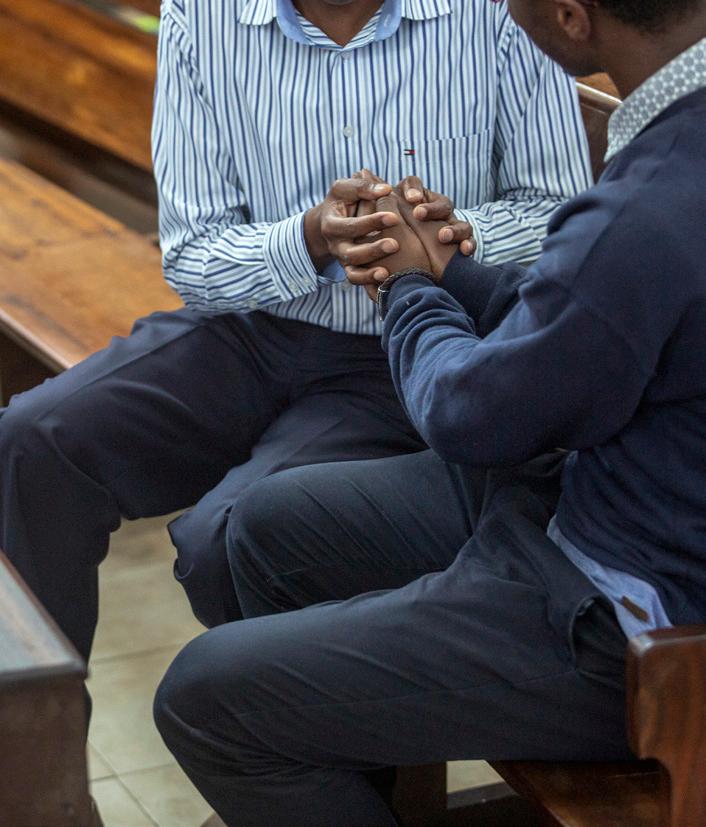
We believe that we are all responsible for each other as fellow human beings. We also have a duty to be sustainable custodians, looking after natural resources for the good of people now and in future.
We pursue our aims with entrepreneurial energy, underpinning all our work with strong values and careful strategic thinking.
Our values – empathy, modesty, endurance and trust – inspire everything we do and are the bedrock of all our relationships.
Working closely in partnership with other organisations, we know we can achieve more together.
We respect the dignity of every individual and are especially mindful of the needs of the most vulnerable among us. We help implement robust safeguarding policies.
Actions speak louder than words, so we get on with our work quietly, changing the world for the better in whatever way we can.
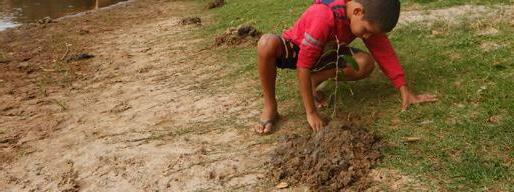
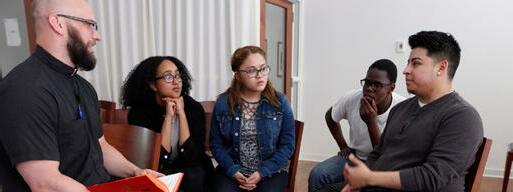

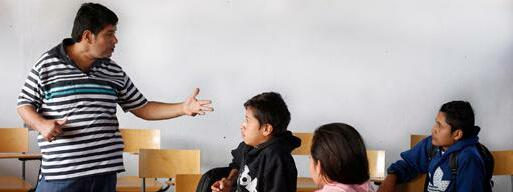
A stronger society means fostering human rights and dignity at all levels: by challenging powerful institutions; tackling prejudice and exclusion; supporting movements that shift the balance of power; and thinking long-term about the obstacles to progress.
Exposure to adversity makes it even more important that children receive an allencompassing range of support to build resilience and instil hope. We advocate Whole Child Development across national and global childcare systems.
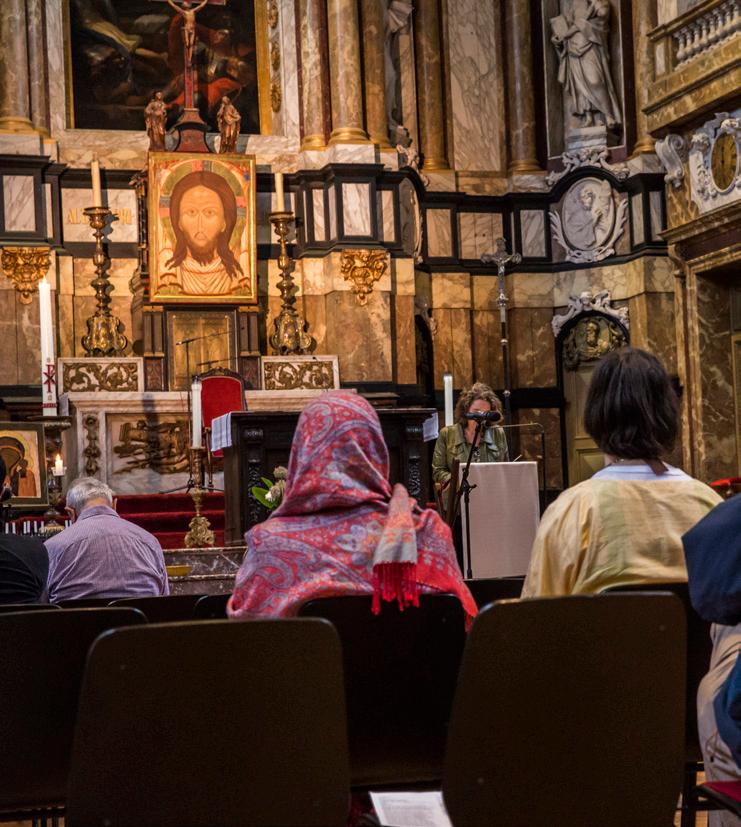
We are looking for a Programme Manager (PM) to support our work with the Catholic Church in Asia. The individual in this position is responsible for developing/managing strategic investments, as well forging networks, with the Catholic Church in Asia, the scope of which is aligned to Porticus strategies. In addition, the individual would support exploratory work in Asia, that promotes meaningful participation and civic engagement. The Programme Manager reports to the Regional Director for Asia and works closely with the three Challenges Managers of the Faith Sector (Building Vital Communities / Child Protection / Vital Catholic Thought), Porticus Asia team as well as colleagues in other offices.
this aim, the “Fostering Vital Faith Communities” sector focuses on the following objectives:
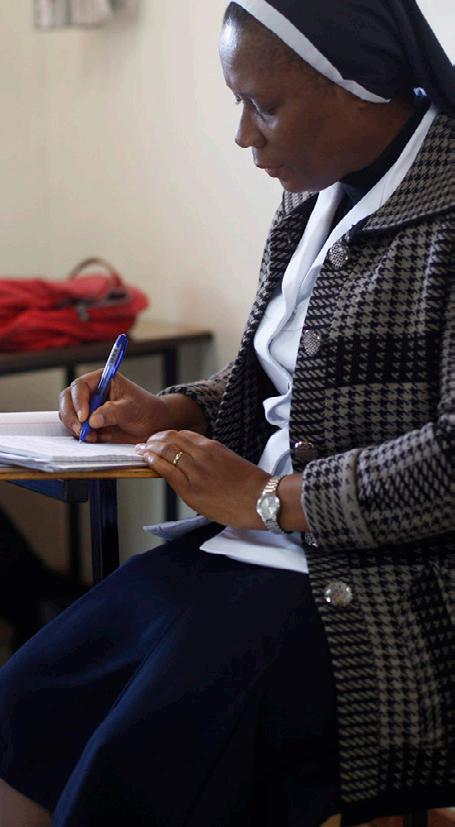
• The Church mainstreams innovative models of leadership, governance, youth engagement and faith communities which foster greater social engagement, sodality, inclusion, and participation
• Catholic universities enable the formation of a new generation with the “languages of head, heart and hands”, such that Catholic Thinking can provide integral intellectual leadership to the Church and broader society to address the fundamental global challenges of our time.
Whilst the Catholic Church is a global community and very influential there is a need for constant renewal. At Porticus, we envision a vital and healthy Church, that is a spiritual source of purpose and meaning, filling ordinary moments with love, and a force for good that makes a credible and inspirational contribution to people’s lives. We strive for a Church that promotes human dignity, a just society & sustainability in a common search for answers to the major global challenges of our world -poverty, climate change, migration, exclusion. We are aware that careful attention to the margins of our societies is an essential criterion of authenticity. We strive to discern the most effective ways in which we can contribute to this vision of the Church. With
• The Catholic church embodies a culture and practice that effectively prevents and responds to violence and abuse of children.
The principles of Catholic Social Teaching provide the framework for all interventions and guide our approach. At Porticus, we believe we also have an important role to play in contributing to defining research, impact measurement, and monitoring and evaluation within the Church sectors where this culture has not always been fully developed. Measurement and evaluation to enable learning, and replication and scaling are good examples of the types of innovation Porticus aspires to advance, as well as practices to support transparency, accountability, and openness.
7 | Porticus Regional Program Manager - Church SectorWithin the portfolio and regional strategies, the PM will:
• Identify opportunities for regional, global, and cross-regional programmes and clearly articulate the expected outcomes.
• Carries out mappings of key stakeholders and context analyses in support of developing new programmes aligned with the Sector strategies.
• Develops programmes and strategic grants that aim for systemic and lasting changes in alignment with Challenge Managers and leads the implementation of these programmes, including ensuring adherence to the corresponding processes at programme- and grant level.
• Manages strategic partnerships and engages in strategic dialogue on emerging and critical issues
• Convenes programme partners and other key stakeholders, exercises leadership with peer funders and partners.
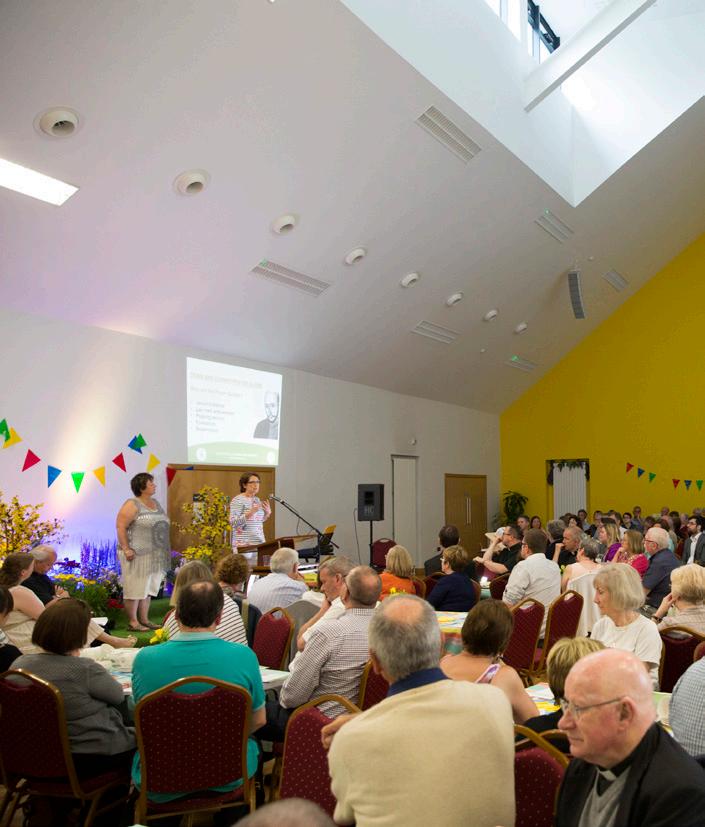
• Develops knowledge in Sectors areas and builds expert network.
• Manage programme and grants impact, shares result internally and externally and applies learning for course-correction and future programmes.
• Contributes to interregional engagement and collaboration by actively supporting Porticus as a Learning Organisation, by sharing knowledge, sharing experiences with Sector teams and fostering own development and of staff under functioning reporting line.
• Master’s Degree minimum, Theological knowledge would be an asset.
Minimum 5 years of experience with Catholic church relationship and their stakeholders.
• In-depth knowledge of the structure of the Catholic Church, its workings, and its areas of activity.
• Experience in philanthropic work and/or grant management in the field of religious affairs, academic cooperation, civil society, and social development.
• Experience in Asia: Church structures, relationship, and stakeholders; Asian religions.
• Previous experience in the not-for-profit sector. Experience in grant making including strategy development, potential grantee due diligence, grant monitoring, evaluation, and reporting.
• Demonstrated effectiveness as a convener, facilitator, and collaborator, including professionally engaging with senior stakeholders.
• Excellent analytical, verbal, and written communications skills in English and Portuguese.
• Good communication skills in English are desired.
• Ability to communicate concepts, research findings, and data interpretations and to draw the implications of these analyses for the objectives of the portfolio and regional strategies.
• Demonstrated skill in independent thinking and problem-solving, with proven ability to manage a complex strategy.
• Availability to travel.
Travel will be required for this position (up to 30% of the working time).
• An (online) assessment and/or written case test will be part of the recruitment procedure.
• Reference checks are the final step of the hiring procedure.
All correspondence, at this stage, should be via Oxford HR. To apply for this post, click on the “Apply” button on the job advert page, complete our online application form, and submit your CV and cover letter as two different documents, which should be prepared before applying as they will be considered in the application process.
The cover letter should be no more than two pages long and explain why you are interested in this post and how your skills and experience make you a good fit.
The documents should be saved in MS Word in the following format: Your First Name-Your Last Name-Document Name-Date (mmyy) e.g., Pat-Mabaso-CV-102022-Porticus or Pat-MabasoCoverLetter-102022-Porticus.
Timeline
Closing Date: Sunday, 18th December 2022
First Stage Interviews: TBC
Final Interviews: TBC
All candidates will receive an update regarding their application after the closing date. We advise candidates to add the role email to their safe senders list and regularly check their spam folder.
Equality and diversity are at the core of Porticus values. Staff are expected to work collectively and individually to promote a constructive and sensitive approach to others from a variety of backgrounds, where the work of others is valued and respected.
If you have any queries on any aspect of the appointment process, need additional information, or would like to have an informal discussion, please email at porticus-rpm-asia@oxfordhr.co.uk in the first instance.
10 | Porticus Regional Program Manager - Church SectorOxford HR operates globally - mainly within the international development and charity sectors. We carry out retained executive search mandates at board and senior management levels. We also offer human resource and organisational development consultancy.
Oxford HR has many years of experience in search as well as an extensive network of international development, social sector, corporate, public sector, and academic contacts from across the world. We carry out comprehensive and often international searches designed to meet the specific needs of our client.
